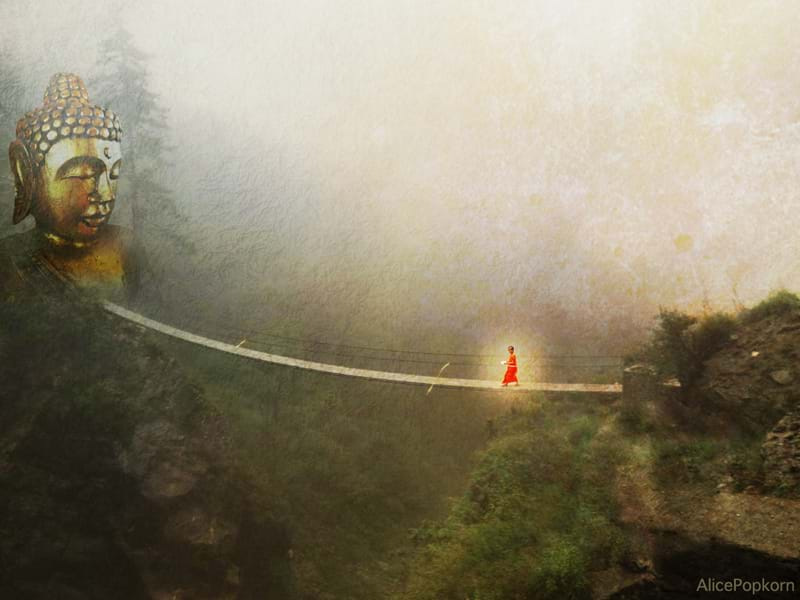Date: Wednesday 22nd – Sunday 26th November, 2017
Venue: Kallara, Strathbogie Ranges
This is a fully residential retreat
Cost: $295 plus dana for the teacher **
Bookings: See information further down this page
Loving Kindness
"....for as all true loves' know, love is perfect kindness. Which is born, no doubt from the heart and the eyes...." from Joseph Campbell and the Power of Myth
In this retreat we will explore the primary heart teachings of The Buddha, the Four Brahma Viharas. (If you don't know this term, Vihara means home, or in this case an attitude or resting place. Brahma is a word from ancient India meaning a divine being. So one translation would be "The Four Divine resting places")
These four are
- Goodwill, kindness, friendliness (Metta) to others and ourself.
- Compassion (Karuna) for ourself and others.
- Empathetic joy (Mudita) celebrating the joy of others and ourself.
- Loving Presence or Equanimity (Upekkha) The quality of spaciousness to the whole of life.
Heart and Head
Although naturally a part of our life, these four attitudes are to be developed and go hand in hand with other teachings that help us develop what Ajahn Chah called true love.
How Metta works
When we come to meditation practice, we come with the habits and views of a lifetime that are essentially what we think of as 'ourself'. We then start meditation with this as a reference point and look from this place. Metta is the starting point where we are developing the attitude of friendliness to all we experience inside and outside. We're not trying to change it, we just have a kind, welcoming attitude towards it. We're allowing what's there to be known. Once we know what's happening, then we can move from a place of wisdom, clarity and satisfying action.
There's a well quoted Zen story that puts it simply. A person comes to an old Zen teacher and says 'You've lived a long life of dedicated practice. What's the result of that?' 'An appropriate response' the Zen master replied.
How does this help me?
In Buddhist practice there's 3 aspects of the path. The Buddha, The Dharma and The Sangha.
The Buddha is the awakened part of our being that is already there.
The Dharma (teachings) are the guidelines about the path to realising this awakening.
The Sangha is the community of like-minded, kind friends on the path.
The friends we have and make along the way, support our awakening and we support theirs. With metta, we learn how to create a sense of safety so we can relax, which helps to deepen inquiry. In compassion we learn to accept the less than perfect, painful parts of ourself and others. Mudita practice brings joy to life.... our practice isn't meant to be a drudgery, but can be joyful. In spacious, loving presence we can rest in an open hearted wisdom that lets go of the suffering of the world and despite the never ending nature of suffering, we do what can be done to help.
Noble Silence
This retreat will be held in silence except for teachings, meditation instructions, teacher interviews and other times where your interaction is valued and helpful. This will be clearly communicated by the teachers.
Nature
Depending on weather, temperature, teaching times and the group we have, we're happy for you to be meditating outside as much as possible. The Buddha spent his entire practice time outside in nature and awoke under the Bodhi tree so we will support you in being outdoors.
I really hope you can join us.
Bookings are closed
Teacher: Anton Eastick
As well as having a long background in Buddhist practice, Anton is trained in the Hakomi method of psychotherapy. Hakomi was one of the first therapies to use mindfulness and sees psychotherapy as a valued part of the spiritual path and not separate. In the professional training for Hakomi, Loving Presence is a major part of the first year of training and in this retreat I'd love to share this with you in the context of meditation practice and traditional teachings. This will be a retreat based very much on traditional teachings but also with a number of teachings I hope will help you in a very practical way to sharpen your attentiveness to the joy of dharma practice.
About Anton? see about page


